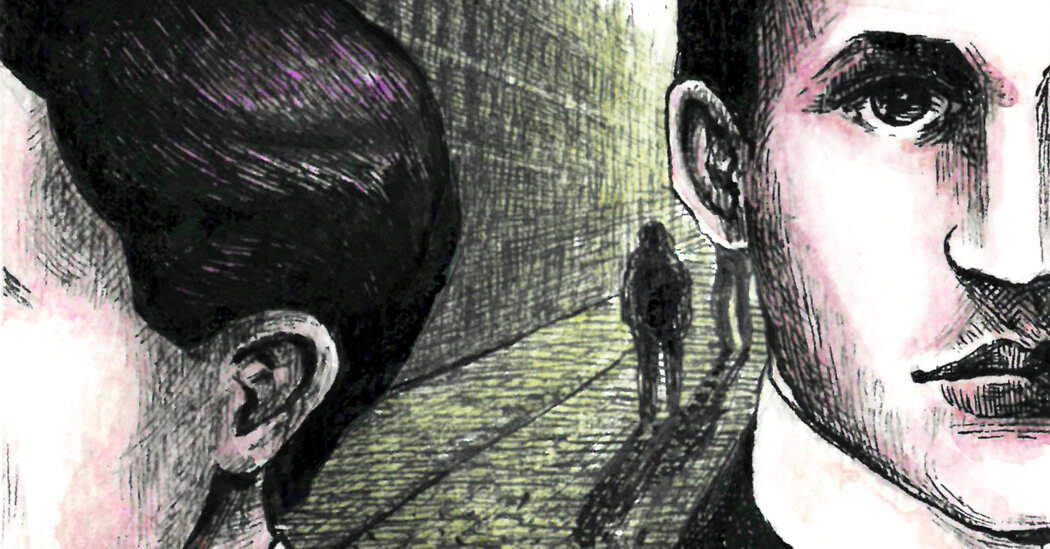
THE NEW LIFE, by Tom Crewe
Tom Crewe’s intricate and finely crafted debut novel makes fiction of real history: In London, in the 1890s, two men, John Addington Symonds and Henry Havelock Ellis, collaborated on a study supporting freedom for “sexual inverts,” or what we would now call gay rights. Their efforts predate popular conceptions of the fight for equal rights, and it’s their lives and work that take the spotlight in Crewe’s reimagining.
“The New Life” opens before the two men meet, with chapters alternating perspectives as a half-welcome third party disrupts each one’s marriage. The novel first introduces John Addington, a wealthy writer and a closet sexual invert himself who begins to indulge his long-held desires with a much younger, working-class man named Frank Feaver. The story then shifts to the sexologist Henry Ellis. Henry’s wedding to the feminist Edith opens his story, but his marriage becomes agitated by the boisterous Angelica, who quickly bonds with Edith while they are on their honeymoon.
From there, John’s and Henry’s stories unfold, in parallel and slowly. It’s not until nearly 100 pages into “The New Life” (a fourth of this sizable novel) that their fates finally begin to intersect. John, having read some of Henry’s work, writes to Henry to learn his thoughts on “Greek feeling; or as it is becoming known, sexual inversion.” Their exchange eventually leads to the idea for a book, “Sexual Inversion,” “an impartial and really scientific study” featuring anonymous accounts from gay men.
There is always a narrative risk when recapitulating events in historical fiction — predetermination can deaden the pulse. Crewe, who earned his Ph.D. in 19th-century British history from the University of Cambridge, makes no such error. He attentively constructs rich, human motivations and contradictions for his fictionalized renderings of John and Henry. For John, freedom for sexual inverts would mean addressing a lifetime of repressed desire and a future with Frank. For Henry, the idea of sexual freedom has resonance with his wife and her lover. (Henry has a different “peculiarity” of his own.) Crewe uses the interior depth of John and Henry to build intrigue, creating provocative developments even without the use of overtly dramatic plot points.
A narrative jolt does arrive eventually, though. Halfway into the novel, in a compelling (though sudden) development, Oscar Wilde is put on trial for “gross indecency,” an event that raises John and Henry’s anxieties about the reception of their project. Shortly after, John and Henry’s book gets caught in turmoil of its own. Both incidents slice open questions of if, and how, John and Henry should stand by their work — defending “Sexual Inversion” could bring about a moment of political and cultural reckoning that John and Henry both want, but it could also expose hidden parts of their lives, and their loved ones’ lives, that they want to keep private.
“The New Life” brims with intelligence and insight, impressed with all the texture (and fog) of fin de siècle London. Crewe’s prose is stylish and precise, reminiscent of Alan Hollinghurst’s. The novel falters only in its later chapters, when John begins a self-destructive streak that is too flatly written to be believable. Otherwise, the writing is exquisite. Moments of furtive queer intimacy — scenes of John and Frank, especially — accumulate power throughout, reminding us that a work like “Sexual Inversion” is important, that it is worth a cost to acknowledge these desires and loves as true, as natural. Altogether, Crewe crafts a meaningful tribute to the pioneering Symonds and Ellis.
For all its historical fixtures, the novel is energized by timeless questions: What’s worth jeopardizing in the name of progress? Who should assume the greatest degree of risk in the pursuit of an ideal? Is it possible for one book to catalyze lasting change? “The New Life” offers a response through a powerful refrain by way of Henry’s words, which John throws back to him during a crucial moment of doubt in their project: “We must live in the future we hope to make.”
Peter Kispert is the author of “I Know You Know Who I Am.”
THE NEW LIFE | By Tom Crewe | 390 pp. | Scribner | $28








